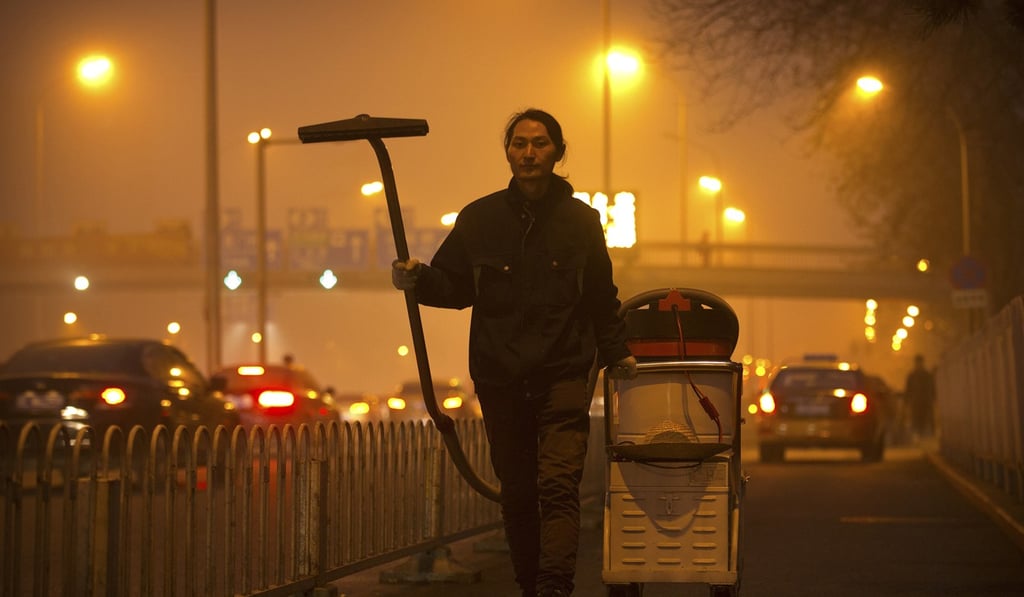Protest art to highlight Chinese urban village dwellers’ plight earns Shenzhen artist a visit from police
- Performance artist known as Nut Brother staged protest using giant excavator and dolls given by residents of Baishizhou, Shenzhen, who face losing their homes
- Police question him for hours over the event, intended to highlight parents’ fears their children won’t get school places when they move from the urban village

An artist in Shenzhen, southern China, best known for producing art that addresses air and water pollution was questioned by police on Monday for his role in an unusual protest involving hundreds of dolls.
More than 1,000 households, most of them migrant workers and their families, will be forced to move home, and many parents are worried their children will be deprived of an education. The local schools are either shutting down or have to move to a different neighbourhood where schools cannot immediately accommodate students without a local hukou, or household registration.
Wang, who lives in Shenzhen, shot to fame in 2015 when he took a vacuum cleaner around Beijing to suck pollutants from the thick air, and then turned the dust he collected into “smog bricks”. He once lived in Baishizhou, and so feels strongly for the increasingly desperate villagers. Last month, he asked them to donate their children’s dolls to three collection points – a local vegetable stall, a mahjong parlour and a tattoo parlour – for a one-off art performance.
On August 4, volunteers arranged around 400 dolls they had collected in an open space near the border between Shenzhen and Huizhou, many with messages and names of their owners. A 29-tonne excavator with a giant claw picked them up one by one and tossed them over the city border, symbolising how parents and their children feel they are being disowned by Shenzhen.

The contrast between the heavy-duty machinery and the dolls made a powerful impact on villagers who went there to watch, according to a volunteer called Zheng Hongbin.
NGO CN, a grass roots non-profit media company, published a feature about the performance and the plight of the villagers last week, which alerted the police to the protest, and they paid the artist a visit on Monday afternoon.
